¶ Filament Printing and Setup Steps
¶ Ensure NO high-temperature filament residue in the nozzle
Before printing TPU-type filament, it is recommended to clean any residual high-temperature filament (especially those with printing temperatures above 240°C) from the nozzle to further reduce the risk of nozzle clogging.
¶ Preparation
TPU flexible filament has strong water absorption properties. When the filament absorbs moisture, it can easily cause stringing, oozing, and nozzle clogging. Drying the filament before printing can effectively solve some of these issues. When printing, place the dried filament in a sealed box with rollers, add effective (non-expired) desiccant, and then lock the box tightly to prevent the filament from absorbing moisture during printing.
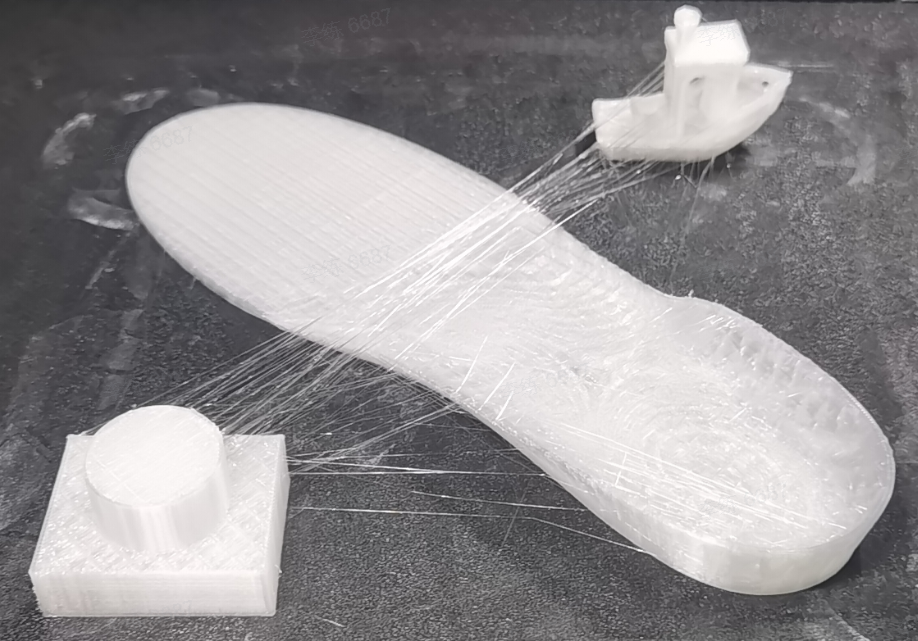
|
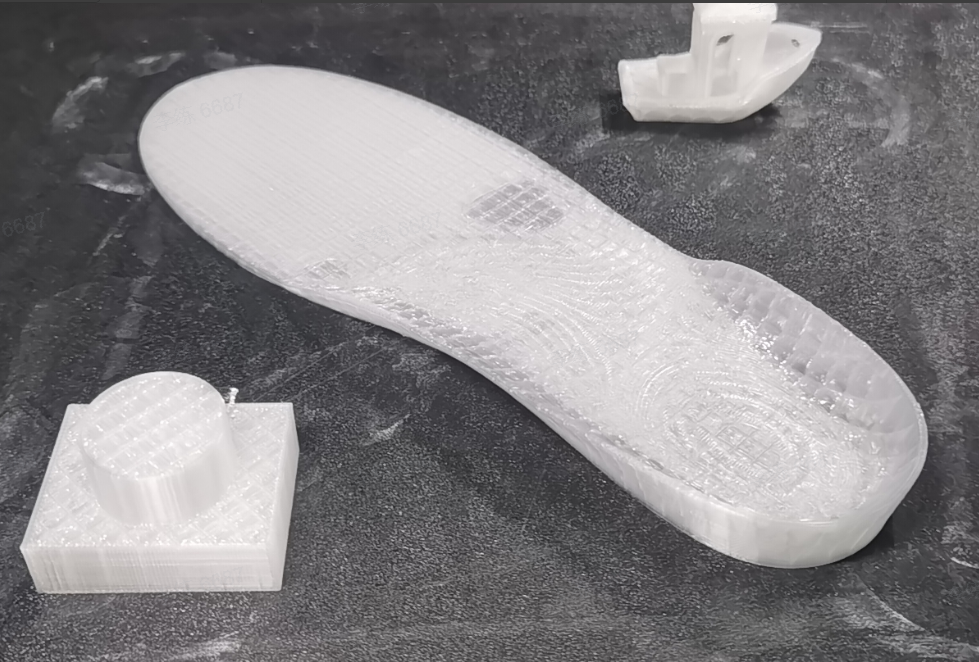
|
¶ TPU filament drying parameters are as follows
|
Filament |
Dry before use |
Keep dry while using |
Creality Drybox |
Air-blown Drying Box |
||
|
Drying Temperature/℃ |
Drying Time/h |
Drying Temperature/℃ |
Drying Time/h |
|||
|
TPU |
Necessary |
Necessary |
70 |
8-12 |
65-75 |
8 |
¶ Filament placement
To ensure better printing results and stability, it is recommended not to print TPU-type filament directly through the PTFE tube. This is because: TPU filaments passing through the PTFE tube further increases resistance, affecting the final printing result.
It is recommended to elevate the sealed box and place it on the left side of the machine for use.
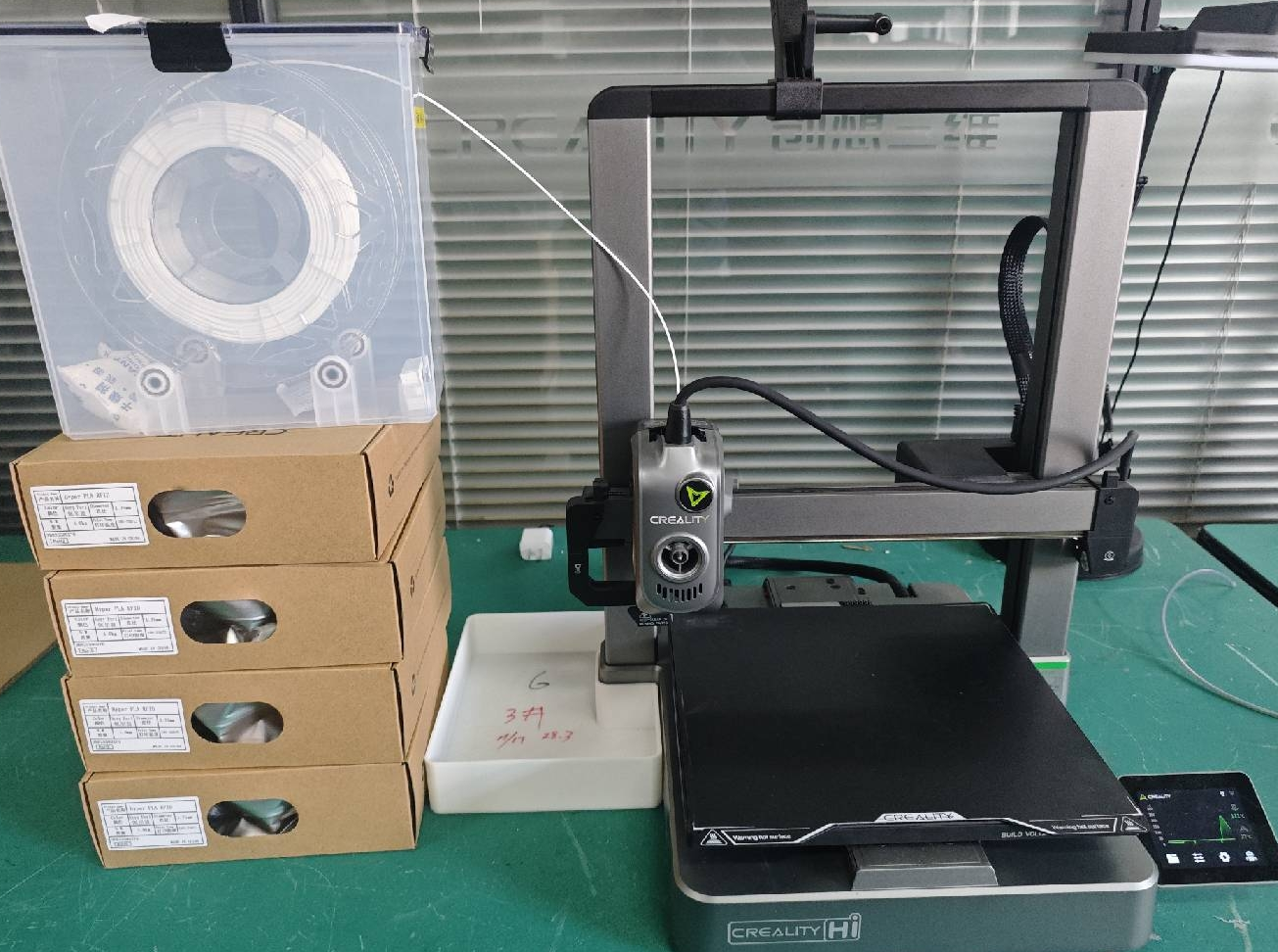
¶ Filament settings on the screen
Make sure that the filament selected on the machine's screen matches the TPU material type before proceeding with filament loading operation.
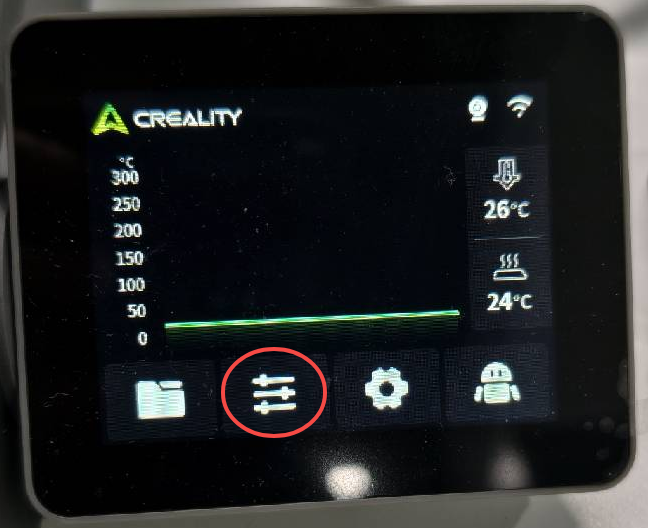 |
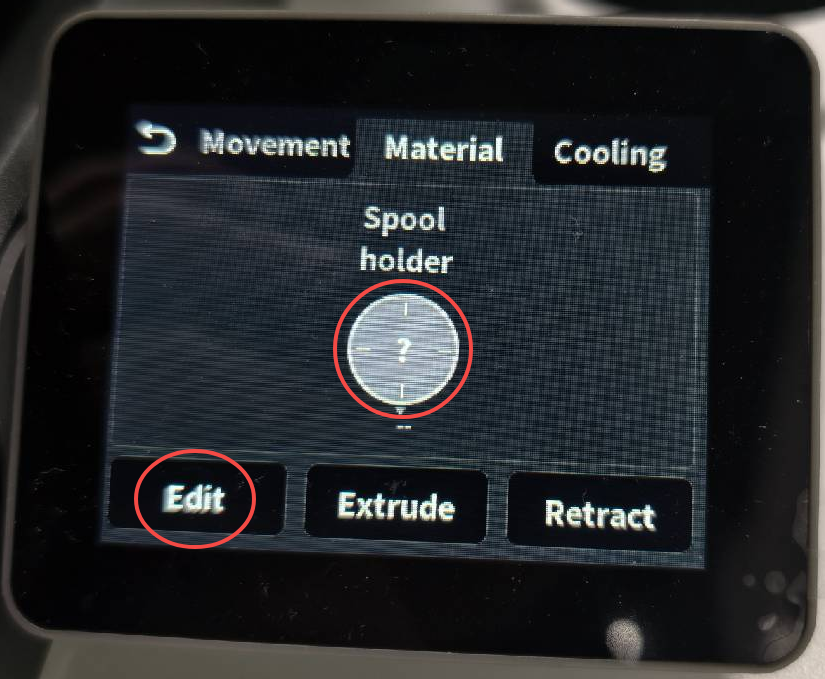 |
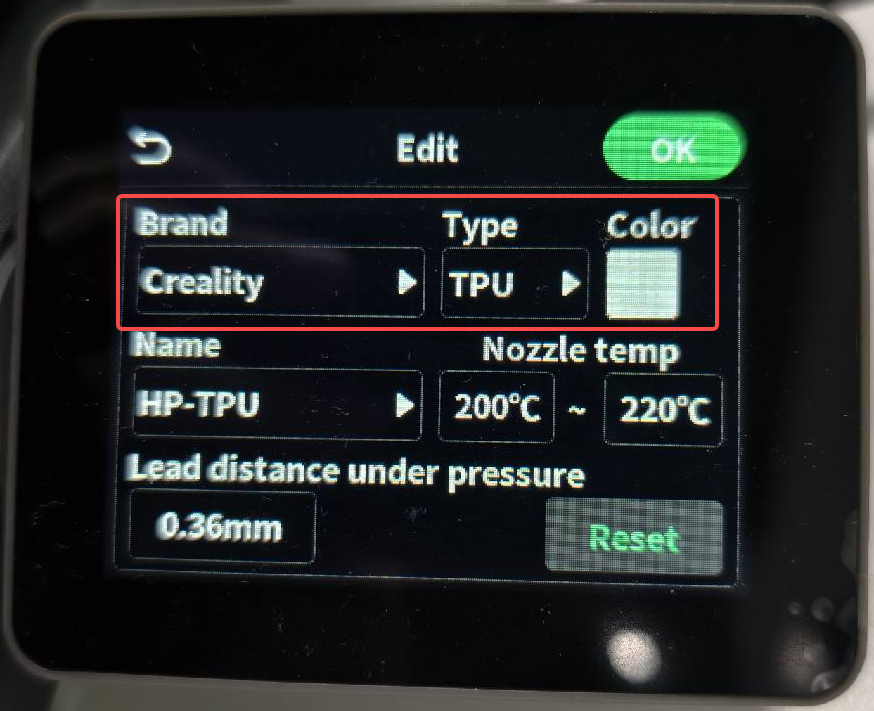 |
¶ Precaution
¶ Do not use CFS for printing
Not suitable for CFS printing, as they tend to bend in the CFS filament tube, which can easily cause loading and retraction failures.
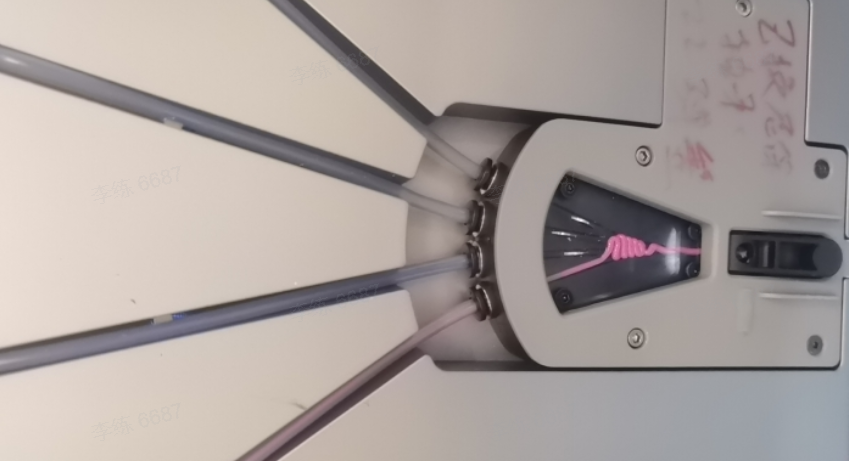
TPU with hardness of 90A, 80A, 75A, 70A (or lower) cannot be printed with the Creality Hi printer, as the TPU material is too soft and can be flattened by extruder gear, leading to nozzle clogging;
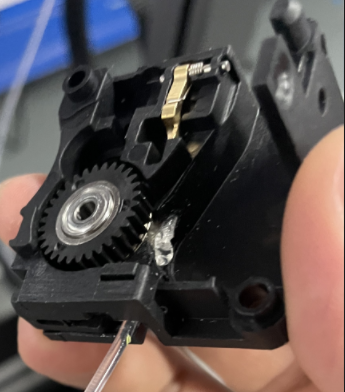
¶ Filament parameters
There are three types of TPU available in CrealityPrint6.0, namely CR-TPU, HP-TPU, and Generic TPU; please select the corresponding filament for slicing.
If you are using non-Creality filament to slice, we recommend:
Maximum volumetric speed: For CR-TPU/Generic TPU, the maximum volumetric speed should not exceed 2mm³/s; for HP-TPU, the maximum volumetric speed should not exceed 3mm³/s
Nozzle temperature: Recommend 220°C
Hot bed temperature: For smooth PEI plate bed, the temperature should not be lower than 40°C